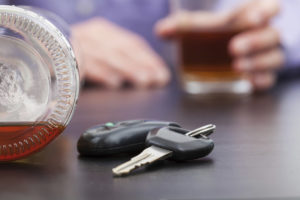 Headlines continue to pour in from all over the country with stories of drivers arrested for drugged driving after police officers find “drugs” in the vehicle – except it later turns out that the “drugs” were not really drugs at all and were misidentified by the drug tests used by officers in the field. Now research has backed up these stories, and it turns out many common items – from powdered sugar to baby formula to spearmint – can confuse the common drug tests used by many police departments in New Jersey and across the country.
Headlines continue to pour in from all over the country with stories of drivers arrested for drugged driving after police officers find “drugs” in the vehicle – except it later turns out that the “drugs” were not really drugs at all and were misidentified by the drug tests used by officers in the field. Now research has backed up these stories, and it turns out many common items – from powdered sugar to baby formula to spearmint – can confuse the common drug tests used by many police departments in New Jersey and across the country.
While testing eventually proved that many of the people who were falsely accused were actually innocent, almost every person was arrested and spent time in jail and then plead guilty or plead to lesser charges before the test results came back. What this means is that, if you or someone you know is charged with DUI, DWI, drugged driving, or driving while high and the police are relying on drugs or marijuana found in the vehicle, you need to contact an experienced attorney as soon as possible. Only a good lawyer will be able to review the evidence against you and determine how to challenge false test results of drugs or marijuana.
The Problem with the Roadside Tests
Many police departments across the country, including in New Jersey, use unreliable field drug identification tests – sometimes call presumptive field tests – to determine quickly if a substance found by a police officer is a drug or marijuana. Many of these tests rely on chemicals called reagents which change colors in the presence of specific drugs or marijuana – except scientists have known that these tests can often result in false positives.
So, why do police departments continue to use these tests? Because the most common tests cost as little as $2 a test, while reliable tests can cost thousands of dollars.
This is how the tests work: A police officer is given a kit that usually has a variety of different vials or capsules inside. The officer then drops a sample of the suspicious substance into a little pouch and mixes it with the compounds inside the capsule, then waits. The pouch turns a specific color to tell the officer of a positive drug test result.
But depending on the reagent and the substance tested, the test may look like it found drugs, when it really was reacting incorrectly or to something else in the substance. This is known as a false positive, and it could easily lead to an arrest.
Known and Common False Positives with Roadside Tests
Here is a list of some of the more well-known problems with the presumptive field tests:
- Cobalt thiocyanate, which is commonly used to test for cocaine, can return a false positive in the presence of methadone, Benadryl, pain relievers, acne medication and 80 other substances including household cleaners.
- The Duquenois-Levine test kit, which is used to identify marijuana, can return a false positive in the presence of patchouli, spearmint, and eucalyptus
- Extreme cold or extreme heat can cause false positives in some tests
- Some tests require multiple steps, and, if performed incorrectly, can result in a false positive.
- Most tests require the police officer to see the color of the test substances and if they have changed. In poor or uneven lighting, a police officer can easily misinterpret what he sees.
- No agency regulates the manufacture or sale of the tests and no records are kept on their use.
Once a test results in a false positive, the police officer will believe that he or she has found drugs. Then, the driver will be arrested for DUI/DWI, and the driver’s innocence may not be proven for months when the test results are confirmed or rejected by actual scientists in a laboratory. In the meantime, many drivers plead guilty to the charges – especially ones who are not represented by an attorney.
Because it can take as long as 6 months before results come back, many people simply cannot wait or do not know how to prove their innocence. If you or someone you know is in this situation, the first thing you should do is reach out to an experienced lawyer as soon as possible.
New Jersey Drug and Marijuana Driving Defense Attorney Edward M. Janzekovich Can Help
Many innocent people are charged every day with DUI and DWI. If you or someone you know needs help fighting false charges against you, it is important to contact an experienced attorney as soon as possible. A good lawyer can make all the difference. To speak with an experienced New Jersey DWI lawyer about your situation, call us at 732-257-1137 or contact us online today. We serve clients throughout the state of New Jersey.


